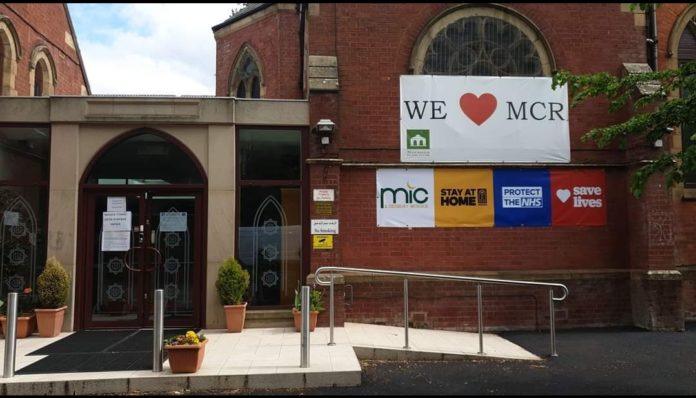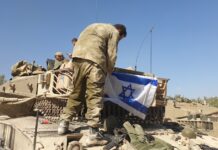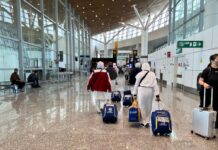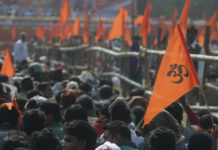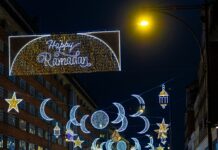Didsbury Mosque has welcomed the Manchester Arena Inquiry’s conclusion that the bomber Salman Abedi was not radicalised there, but has disputed the finding that it was “wilfully blind” to a political debate raging about the Libya conflict.
Here is the mosque’s statement in full:
First and foremost, Didsbury Mosque wishes to recognise the bravery and dignity shown by the victims and the families of victims during the course of the Inquiry and the evidence heard.
The anguish felt by the victims cannot accurately be put into words and Didsbury Mosque wishes to offer its unwavering support to all those affected and hopes that the conclusion of this Inquiry can provide a pathway to obtaining some justice and closure.
The Mosque will do all it can to ensure that it is a place of peace, calm, and safety for all those who come to worship or visit and recognises and understands how dangerous the scourge of extremism/terrorism can be. It will not be tolerated under any circumstances whatsoever.
Didsbury Mosque also wishes to thank the Chair for overseeing a long and difficult Inquiry.
After considering the final report issued on 2nd March 2023, Didsbury Mosque agrees with the conclusion that the Mosque was not involved in the radicalisation of Salman and Hashim Abedi.
Subscribe to our newsletter and stay updated on the latest news and updates from around the Muslim world!
However, some of the findings of the report are disputed by Didsbury Mosque and in the interests of transparency we wish to respond to said findings.
- The trustees were invited voluntarily to give evidence to the Inquiry; they were never a core participant. Didsbury Mosque provided written evidence and responses on numerous occasions and our chair also gave oral evidence. It is vital that the public understand that we attended and cooperated with the hearing on a voluntary basis, purely to assist with the Inquiry and Didsbury Mosque is of the opinion more could have been done to highlight this fact.
- The Chair has made comments on evidence heard from Mr. Haffar and Mr. Saeiti and has stated that the evidence of Mr. Saeiti was preferred. It should be noted that Mr. Haffar was subjected to vigorous cross-examination whereas Mr. Saeiti, was not. The opinion of Didsbury Mosque is that had Mr. Saeiti been cross-examined and had his evidence been tested, he would have been found lacking in credibility and his evidence widely dismissed.
- Didsbury Mosque also notes that a previous longstanding Imam Mr. Graff was not invited to give evidence at the Inquiry. We will stand corrected if an invite was sent to him. Mr. Graff voluntarily provided his own statement to the Inquiry and Didsbury Mosque feels that more consideration should have been given to this statement as Mr. Graff was an Imam who served for a long period of time and had a deep understanding of the issues raised by Mr. Saeiti.
- Didsbury Mosque does not agree with the assertion that it was “wilfully blind.” The trustees do not manage the activities at the mosque on a day-to-day basis, the staff do. There were no meetings of radical Libyan groups at the mosque. Evidence was provided to the Inquiry that proved there is a longstanding policy of not allowing overseas politics at the mosque. Like many mosques the meeting room was hired for humanitarian aid work in Libya and for other countries, this is not evidence of extremism. An allegation was made against two individuals who had held meetings on the day Mr. Haffar gave evidence. Those individuals subsequently submitted statements to the Chairman that they were not extremists but holding a lawful registered charity/social meeting. Those statements have not been commented upon by the Inquiry.
- Didsbury Mosque asked trustees and staff what they knew about the Abedi family and any sightings. They were asked to put their response into an email. Those emails included that of both Imams. Copies were provided to the Inquiry. If any former member of staff now claims other information, we would ask why that information was withheld and was not put in the email or provided to the police in the first place and question the motive. We provided details of Ismail Abedi his mother and his sister working at the mosque to the Inquiry. They have not been charged with anything to do with this attack and were DBS cleared. There was no other information we had to give. Mr. Haffar the Chair has never met anyone from the Abedi family and answered at a personal level which is the truth. Other trustees and staff confirmed what they knew to the Inquiry.

- Didsbury Mosque had been a place where Ramadan Abedi and their sons prayed until 2006 when they moved to a mosque in another part of the city, after which they went to Libya and then the children returned. They were not known to the mosque as adults (except Ismail), and this was not their local mosque. Our staff reported a visual sighting of Salman on a few occasions at Friday prayers. He is said to have prayed and left. No contact or conversations were reported to have taken place. Ramadan Abedi attended Ismail’s Islamic marriage contract as the witness and father, in the prayer hall. We were shown a recording of this only on the day of our public hearing. It was presented on the day as if it was evidence of an extremist circle at the mosque. The trustees were not made aware of this beforehand. Thousands of marriage contracts have been performed at this mosque the staff cannot be expected to recall them all and the trustees are not aware of them. Does this mean we are linked to everyone who has a marriage at this mosque from any ethnic origin?
- The mosque has been linked to Libya and the wider political situation in the country, because of the common ethnic heritage of some of our staff and those who come to pray. Are we linked to worshippers from Pakistan, Syria, and Iraq too? We also cannot be linked with the politics and political comments of the Libyan or any community on their social media or in their private lives, simply because they come and say their prayers at our premises or hold a charity meeting or marriage here. The Inquiry and its lawyers and experts have also sometimes confused political comments and discussions about conflicts overseas with extremism that leads to terrorism. Are the Muslim community not able to discuss any politics overseas? This is a flawed approach. None of our trustees are of Libyan heritage. The breakdown of Libyan and non-Libyan staff and trustees was provided to the Inquiry at the outset. The Mosque has no links with Libya other than this.
- We did not accept weak management in Libyan or other politics. There have been a few staffing/management issues to deal with which happen at every institution. The trustees have had a long-term informal policy of not allowing Imams and speakers to use the mosque for politics or expressing their personal political opinions. This predates 9/11 and has been effectively applied over decades. Two former Libyan Imams had opposing political views of the Libyan civil war, but both were against extremism and ISIS. Didsbury Mosque was aware of their differences and managed them as best and sensitively as they could. Neither were allowed to use the mosque for the promotion of their political views. Both gave sermons against extremism, and the mosque has always preached against anyone going overseas to fight. From 2011 -2017 there were 364 Friday sermons. Many had spoken against extremism. During that time two sermons strayed slightly into politics, and both were clamped down on by trustees immediately and the Imams warned not to let it happen again. A correspondence warning to both Imams was provided to the Inquiry. These two sermons and the mosque’s response to them were discussed at the Inquiry.
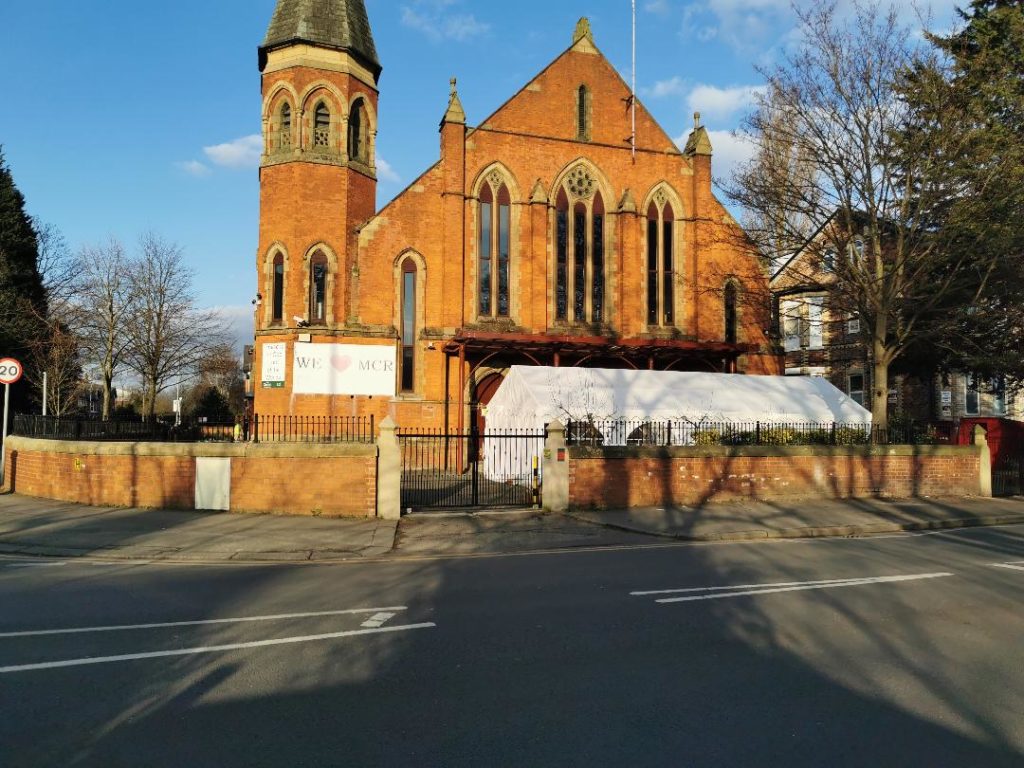
- It has been alleged that the former Imam of the Mosque Mustafa Graf called for people to go to fight in the fundraising sermon he delivered which was widely reported in the media. That sermon was a fundraising sermon for local charities because of a chemical attack on Syrian people. The call was for striving by Maal (or giving). The police expert who examined the sermon concluded that this was not an encouragement for warfare but charity. The Mosque also commissioned an independent expert to investigate the sermon and that reached the same conclusion. Our investigation concluded: “There was no objective of encouraging people to take up arms, nor did the khutbah do so. Our main reason for saying this is: – a) there was a clear charitable purpose to khutbah. b) those verses commonly known as the ‘fighting verses’ or ‘sword verses’ are not used in the Khutbah. The fighting verses are used by most scholars or leaders of violent groups who wish to encourage taking up arms and fighting. The BBC’s own website defines Jihad and mentions types of non-violent expression as Jihad and states the key fighting verses. c) At the end of the Khutbah in English, MG makes it clear he is asking people for donations for victims in Aleppo, not just to give loose change but give more and that ‘this will be considered Jihad fi Sabeelillah (Jihad in the path of Allah).’ This is also mentioned, toward the end of the speech in Arabic ‘spend your wealth considering that your Jihad in the path of Allah.’ It is also mentioned in the last Arabic paragraph ‘seeking reward from Allah with your wealth and effort and do not be miserly and do not hesitate.’ d) The congregation understood the purpose of the Khutbah was fundraising.“
Didsbury Mosque wishes to reconfirm that it voluntarily and wilfully aided the Inquiry to the best of its ability based on the information it could gather. This has been done in the interests of transparency and justice.
Didsbury Mosque will continue to cooperate with and provide support to the victims and their families and is committed to doing so. We have already indicated that we will to the Inquiry. It is also hoped that the findings of the Inquiry can assist in preventing such an atrocity from occurring again and assist those affected in finding closure.






